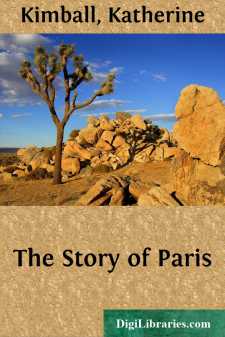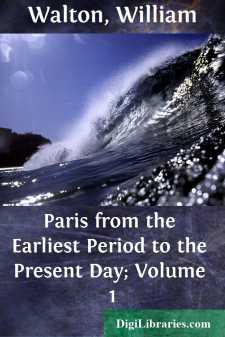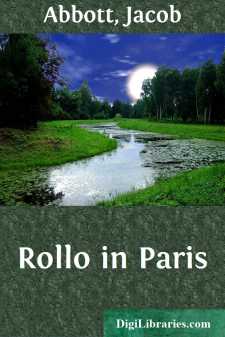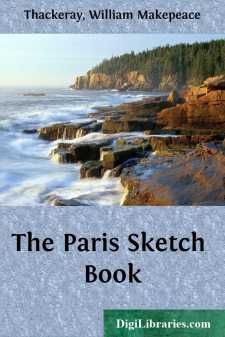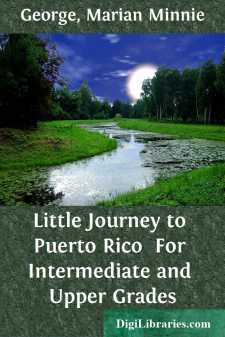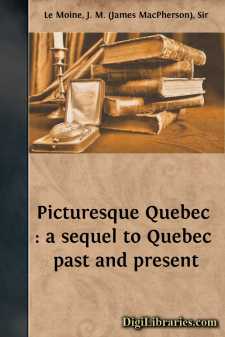Travel
- Africa 29
- Alaska 3
- Asia 46
- Australia & Oceania 26
- Canada 31
- Caribbean & West Indies 5
- Central America 1
- Europe 151
- General 39
- Maps & Road Atlases 1
- Mexico 10
- Middle East 18
- Polar Regions 7
- Reference 11
- Restaurants 1
- Russia 6
- South America 16
- United States 71
Travel Books
Sort by:
In recasting Paris and its Story for issue in the "Mediæval Towns Series," opportunity has been taken of revising the whole and of adding a Second Part, wherein we have essayed the office of cicerone. Obviously in so vast a range of study as that afforded by the city of Paris, compression and selection have been imperative: we have therefore limited our guidance to such routes and edifices as...
more...
by:
William Walton
F the capital of the French nation, situated on the river Seine, were simply the most beautiful, the wittiest, wickedest, and most artistic of towns, if—as has been so often asserted (and not exclusively by the citizens thereof)—the most commonplace and the most brilliant of human manifestations alike take on new qualities, texture, and interest the moment they become Parisien, then, indeed, would...
more...
by:
Jacob Abbott
Chapter I. The Arrangements. Gentlemen and ladies at the hotels, in London, generally dine about six or seven o'clock, each party or family by themselves, in their own private parlor. One evening, about eight o'clock, just after the waiter had removed the cloth from the table where Rollo's father and mother, with Rollo himself and his cousin Jennie, had been dining, and left the table...
more...
DEDICATORY LETTER TOM. ARETZ, TAILOR, ETC.27, RUE RICHELIEU, PARIS.SIR,—It becomes every man in his station to acknowledge and praise virtue wheresoever he may find it, and to point it out for the admiration and example of his fellow-men. Some months since, when you presented to the writer of these pages a small account for coats and pantaloons manufactured by you, and when you were met by a...
more...
by:
Thomasina Ross
CHAPTER I. Embarkation at Havre—ââ¬â¹The Voyage—ââ¬â¹Arrival at the Island of Chiloe—ââ¬â¹Landing—ââ¬â¹The Gyr-Falcon—ââ¬â¹Punta Arena—ââ¬â¹The Island of Chiloe described—ââ¬â¹Climate and Cultivation—ââ¬â¹Cattle—ââ¬â¹The Bay—ââ¬â¹San Carlos—ââ¬â¹The...
more...
PREFACE South America is, to my mind, "the Coming Continent"—the Continent of the future. Everybody knows the wealth of the Argentine, Peru, Chile, and Bolivia; but the interior of Brazil, the largest and richest country of all, not unlike forbidden Tibet, was perhaps better known a century or two ago than now. Few people realize that Brazil is larger than the United States of North America,...
more...
AN EPOCH IN HISTORY. Few people pause to think that Tuesday, the twenty-third day of July, nineteen hundred and one, not only placed a mile-stone on the road of civilization, but also marked an epoch in the history of the world. That day placed a mile-stone on the road of civilization because it saw the culmination of one of the greatest movements ever attempted in behalf of common school education. It...
more...
by:
John Hughes
PARIS TO ROCHEPOT. No one, I imagine, ever yet left an hotel in a central and bustling part of Paris, without feeling the faculty of observation strained to the utmost, and experiencing a whirl and jumble of recollections as little in unison with each other as the well known signs of that whimsical city, the Bœuf à-la-mode, (with his cachemire shawl and his ostrich feathers) and the Mort d'Henri...
more...
A LITTLE JOURNEY TO PUERTO RICO Do you know what people mean when they speak of "Our New Possessions"? What are they? Where are they? Why are men, in the streets, in the shops, everywhere, talking about them? Why are the newspapers full of articles in regard to them? Why are our lawmakers at the capital devoting so much time and attention to them? Can you tell? Some of these things you can...
more...
CHAPTER 1. FIRST IMPRESSIONS OF QUEBEC. Quebec, founded by Samuel de Champlain, in 1608, has certainly much to recommend her, by her monuments, her historical memories and her scenery, to the traveller—the scholar—the historian. The wintering of the venturesome Jacques Cartier on the banks of the St. Charles in 1535-6, by its remoteness, is an incident of interest, not only to Canadians, but also...
more...


